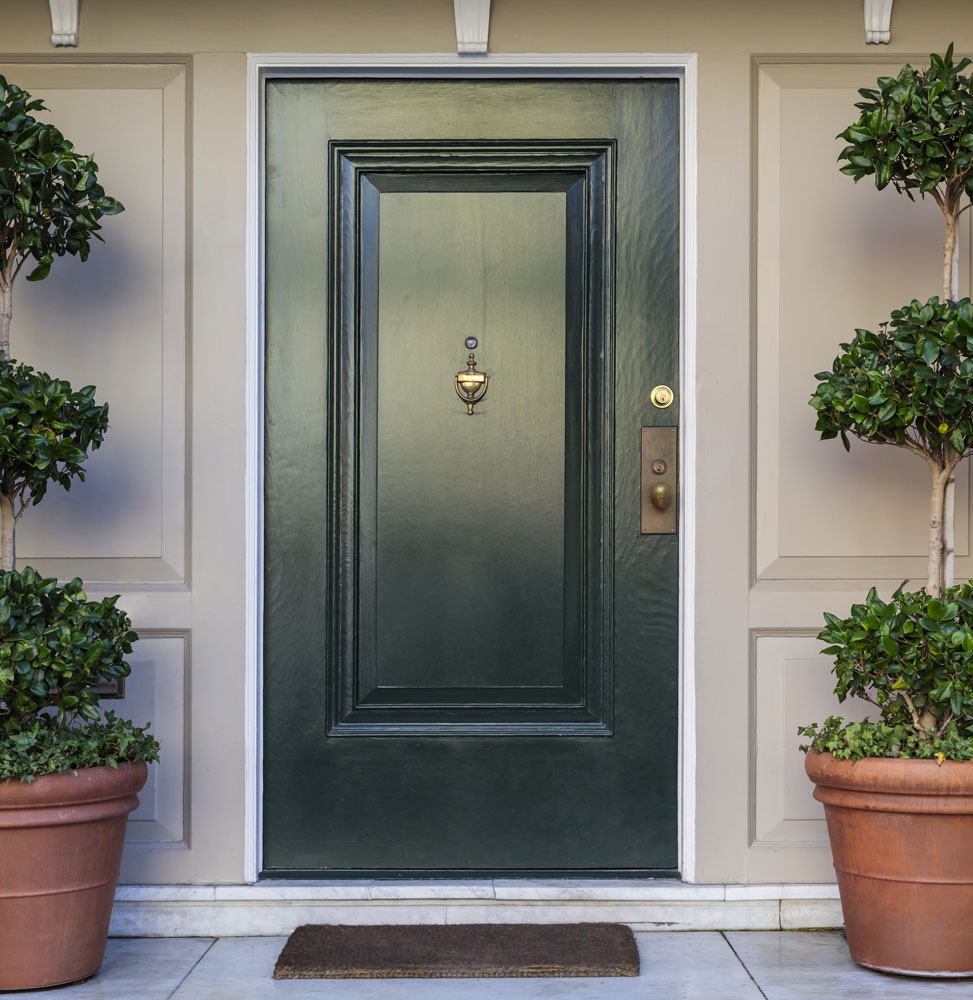
Moving into a new home is one of life’s most exciting milestones, but it also brings with it a range of important responsibilities, especially when it comes to safety. One of the first and most crucial steps every homeowner should take is to rekey locks after moving. While it might not be as exciting as decorating your living room or setting up your kitchen, securing your property ensures your peace of mind and protects your loved ones. Rekeying your locks is a simple, affordable, and often overlooked step that prevents unauthorized access and strengthens your home security from day one.
Why Rekey Locks After Moving into a New Home Matters
When you move into a new house, you never truly know how many copies of your keys might be circulating. Whether it’s the previous homeowners, real estate agents, contractors, or even cleaning staff, it’s impossible to track everyone who might have had access to your property. Rekeying your locks gives you complete control and reassurance that only you and your chosen family members or roommates can enter your home.
Risks of Not Rekeying When Moving
Failing to rekey your locks after moving can lead to serious and preventable security risks. Here are the main reasons why it’s so important:
- Unknown Key Holders: Even if the previous owners seem trustworthy, there’s no guarantee they retrieved every spare key. They may have given copies to friends, neighbors, or service providers over the years.
- Increased Vulnerability: Homes that aren’t rekeyed immediately after move-in are far more vulnerable to unauthorized access or theft. Someone with an old key could easily enter without forced entry, making it harder to prove a break-in occurred.
- Insurance Issues: In some cases, insurance companies may question claims related to burglary if there’s no sign of forced entry and if you didn’t change or rekey your locks upon taking ownership.
- Peace of Mind: Beyond physical security, rekeying also provides emotional assurance. Knowing you’ve secured your entry points helps you feel fully settled and confident in your new home.
Rekeying is one of those tasks that takes minimal effort compared to the immense security benefits it provides. You can think of it as pressing the reset button on who has access to your house.
Timing and Frequency Recommendations to Rekey Locks After Moving
The best time to rekey your locks is immediately after moving in, before you’ve even unpacked your boxes. Ideally, you should coordinate with your locksmith so that rekeying happens the same day you receive the keys. This ensures there’s no period when others could potentially enter your home using old keys.
However, rekeying shouldn’t be a one-time event. Over time, you may find new reasons to change your locks again. Here’s a breakdown of when and how often you should consider rekeying:
- Right After Moving In: This is the most important time to rekey. It eliminates the risk of previous key holders accessing your home.
- After Losing a Key: If you or a family member loses a house key and you’re not sure where it ended up, rekeying ensures that no one who finds it can use it to enter your home.
- After a Breakup or Roommate Change: Anytime someone moves out who previously had access, it’s wise to rekey. Even if trust remains, it’s best to err on the side of caution.
- Every Few Years for Maintenance: Over time, locks can wear down or become outdated. Rekeying every few years keeps your locks functioning smoothly and allows you to upgrade your security.
- After Hiring Contractors or House Sitters: If you gave a temporary key to anyone who no longer needs access, rekeying helps ensure those copies don’t become a future problem.
The frequency depends on how often your keys change hands and how comfortable you feel with the current level of access. For many homeowners, rekeying every two to three years, or immediately after any significant change in household members, is a good rule of thumb.
DIY vs Professional Rekey Locks After Moving into a New Home
When it comes to rekeying locks, homeowners often wonder whether they can handle it themselves or if they should hire a professional locksmith. Both options have their pros and cons, and understanding them helps you make an informed decision that balances cost, time, and security.
DIY Rekeying
DIY lock rekeying kits are available at most hardware stores, and they typically come with the pins, tools, and instructions you need to complete the job.
Pros of DIY Rekeying:
- Cost Savings: DIY kits are generally cheaper than hiring a locksmith.
- Convenience: If you already have basic tools and mechanical skills, you can complete the task in an hour or two.
- Learning Experience: For hands-on homeowners, DIY rekeying can be a satisfying way to learn about how locks work.
Cons of DIY Rekeying:
- Risk of Mistakes: Locks are precision mechanisms. A small error can render the lock unusable or insecure.
- Time-Consuming: If you’re inexperienced, rekeying can take much longer than expected.
- Limited Scope: DIY kits usually only work with specific brands and types of locks. If your home has different lock types, you may need multiple kits.
- No Warranty or Guarantee: Unlike professional services, DIY rekeying doesn’t come with warranties or liability protection if something goes wrong.
DIY may be fine for a simple rekey on a single lock, but for multiple doors or high-security systems, professional help is the better choice.
Professional Rekeying
Hiring a licensed locksmith is the safest and most efficient way to ensure your locks are rekeyed correctly and securely.
Pros of Professional Rekeying:
- Expertise and Tools: Locksmiths have specialized tools and training to handle any lock type efficiently.
- Quick and Reliable: Most professional rekeying jobs can be completed in less than an hour for an entire home.
- Enhanced Security: Professionals can assess your home’s overall security and recommend upgrades or additional measures.
- Warranty and Assurance: A reputable locksmith provides a guarantee on their work, giving you added peace of mind.
Cons of Professional Rekeying:
- Higher Cost: Professional services are more expensive than DIY kits, though the difference is often minimal considering the quality and assurance provided.
- Scheduling: You’ll need to coordinate an appointment, though many locksmiths (like Express Locksmith) offer 24/7 service for convenience.
If you value security and want the job done right the first time, hiring a professional locksmith is well worth the investment.
Cost Breakdown for Rekey Locks After Moving
The cost of rekeying your locks can vary depending on several factors: the number of locks, their type, and whether you hire a professional.
Average DIY Costs:
- Rekeying kit: $15–$25
- Time investment: 1–3 hours (depending on skill level)
- Risk: Moderate (possible damage or lock failure if done incorrectly)
Average Professional Costs:
- Service call fee: $40–$100
- Rekey per lock: $15–$50
- Total average cost: $80–$250 for a typical home
- Time investment: Less than an hour
- Benefit: Professional quality, warranty, and peace of mind
Some locksmiths also offer bundle pricing for rekeying multiple locks at once, which can save money. It’s always a good idea to request an upfront quote before booking to understand the total cost.
How to Book a Locksmith for Rekey Locks After Moving
Booking a locksmith doesn’t have to be complicated. Here’s how to make the process smooth and efficient:
- Research Local Locksmiths: Look for a licensed, insured, and well-reviewed locksmith in your area. Check their website, Google reviews, or social media to gauge their reputation.
- Request a Quote: Call or fill out an online form to get an estimate. Be ready to provide details about your locks, the number of doors, and your location.
- Ask About Services: Confirm that they handle rekeying specifically, not just lock replacements. You can also ask about additional security services such as master key systems or smart lock installations.
- Verify Credentials: Make sure your locksmith is certified and has proper identification when they arrive.
- Schedule the Appointment: Most locksmiths offer flexible scheduling, including same-day or emergency services.
- Inspect the Work: Once complete, test all keys to ensure they work smoothly and that old keys no longer function.
For Houston-area homeowners, Express Locksmith offers a hassle-free process with fast, professional service. Whether you’re moving into a new house, need to secure a rental property, or have just lost your keys, we’ll get the job done quickly and correctly.
Additional Security Measures for New Homeowners
Rekeying locks after moving is a strong first step, but there are several additional ways to enhance your home’s safety. Here are a few proactive measures new homeowners should consider:
- Upgrade to High-Security Locks: If your home’s locks are old or standard-grade, consider upgrading to high-security or smart locks. These offer advanced protection against picking, bumping, and drilling.
- Install a Deadbolt: A sturdy deadbolt adds a second layer of protection to exterior doors. Choose a quality model with reinforced steel bolts.
- Add a Peephole or Doorbell Camera: Knowing who’s at your door before opening it helps prevent potential intrusions. Smart doorbell cameras let you see and speak to visitors remotely.
- Secure Sliding Doors and Windows: Sliding glass doors and windows are common entry points for burglars. Use security bars, sensors, or secondary locks to prevent them from being forced open.
- Set Up a Security System: Installing a monitored alarm system deters intruders and provides 24/7 protection. Many modern systems integrate with smart home devices for real-time alerts.
- Reinforce Entry Points: Strengthen door frames and hinges with metal plates or reinforced screws. Even the best locks are only as strong as the door and frame supporting them.
- Outdoor Lighting: Motion-activated or timed lighting can deter nighttime intruders and make your property feel safer.
- Keep Keys Secure: Avoid hiding spare keys outside in obvious places. Instead, leave a spare with a trusted neighbor or use a secure lockbox.
By combining rekeying with these additional measures, you can create a comprehensive home security plan that protects your property and loved ones for years to come.
Contact Us Today
Rekeying your locks after moving into a new home is one of the simplest yet most effective ways to safeguard your property. It’s a quick, affordable, and essential step that ensures only trusted individuals have access to your new space. Whether you choose to handle it yourself or hire a professional locksmith, rekeying brings peace of mind and protection that’s well worth the effort.
If you’re unsure about the process, need advice, or want a reliable locksmith to handle it for you, don’t hesitate to call the professionals at Express Locksmith.
At Express Locksmith, our name is what we’re all about! Count on us for quick lock and key services for your home, business, or automobile. Our team is available 24/7; regardless of the timing or circumstances, we are here to help you in your time of need. Call us for lockouts, master key systems, and more, 24 hours a day. We’re always available, no matter the situation.
